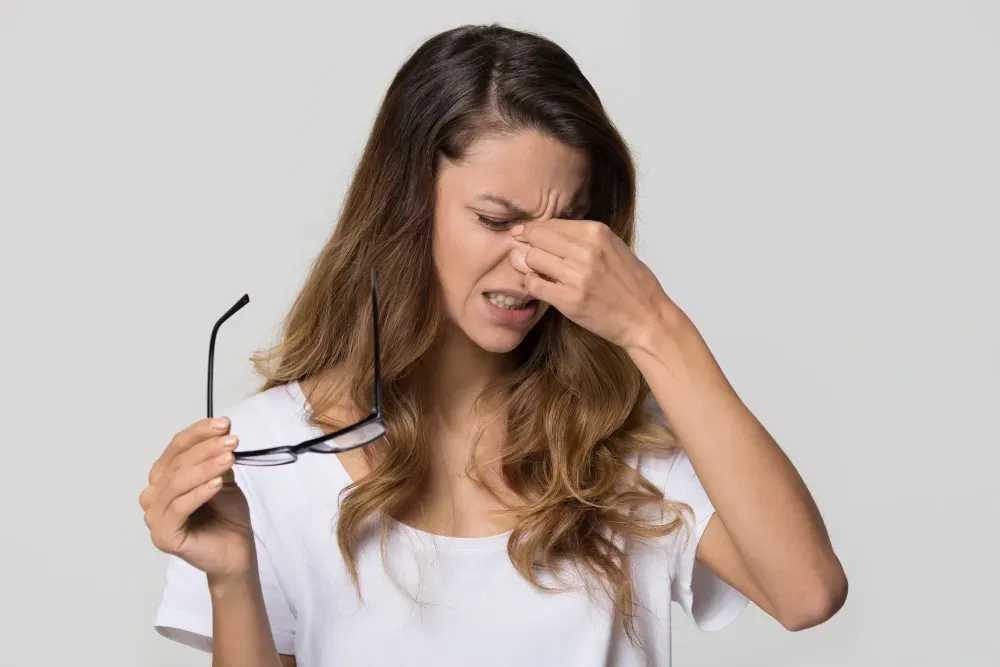Eye floaters are a common experience for many individuals, often perceived as tiny shadows, specks, or thread-like images that drift through one’s field of vision. Although they can be startling or annoying, they are usually harmless and part of the natural aging process. In this article, we will explore what eye floaters are, why they occur, and how they can be managed.
What Are Eye Floaters?
The visual phenomenon known as eye floaters is typically caused by small flecks of collagen, a protein that is part of the vitreous gel inside the eye. Over time, the vitreous partially liquefies and shrinks, leading to the formation of these flecks. Flecks tend to cast shadows on the retina, which are what we see as floaters.
Causes of Eye Floaters
There are various reasons why eye floaters may occur. For most individuals, it is an age-related condition, becoming more common as the vitreous gel changes consistency with time. However, some other conditions might increase the likelihood of experiencing floaters, including eye injuries, inflammation, or bleeding within the eye, and some retinal diseases.
When Should You Worry About Eye Floaters?
Though eye floaters are generally not a cause for alarm and do not adversely affect your sight, there are scenarios wherein they could be indicative of a more serious issue such as a retina tear or detachment. If you notice a sudden increase in floaters, especially if accompanied by light flashes or a loss of peripheral vision, it is imperative to seek immediate medical attention.
Diagnosing Eye Floaters
Diagnosing floaters typically involves a comprehensive eye examination. An eye specialist might utilize dilating drops to examine the health of your vitreous and retina thoroughly. These examinations are crucial in ensuring that no underlying eye conditions are causing the floaters.
Managing Eye Floaters
Learning how to cope with floaters is important for those who experience them frequently. In most cases, the brain adapts to their presence, and they become less noticeable over time. This natural process of mental filtering is often the best treatment for many individuals.
Lifestyle Adjustments
While eye floaters cannot be prevented due to their association with natural aging, certain lifestyle adjustments can be beneficial. Maintaining a healthy diet, wearing protective eyewear to prevent injuries, and keeping well-hydrated can contribute positively to overall eye health.
Medical Interventions
In instances where floaters severely impact one’s vision, medical options are available. Laser therapy and vitrectomy are two procedures that can reduce the number of floaters. These treatments, however, are only recommended in extreme cases due to their associated risks.
The Role of Regular Eye Check-ups
Regular eye examinations are essential for monitoring the health of your eyes and identifying any early signs of complications that could lead to floaters. Early detection can help manage or treat potential problems before they worsen.
Conclusion
Though eye floaters can be a nuisance, they are generally not a cause for concern. Individuals experiencing floaters should monitor their eye health and seek professional advice if there is any change in their condition. Through understanding and properly managing eye health, the disturbances caused by floaters can be minimized, ensuring that quality of life is maintained.
Seeking Professional Help for Eye Floaters
If floaters are affecting your everyday life or if you have concerns about your eye health, it is advisable to consult an eye care professional. They can provide personalised advice and treatment options to manage the symptoms of eye floaters.
Educating Yourself on Eye Health
Becoming informed about eye health, including the causes and implications of eye floaters, empowers individuals to make better decisions about their eye care. It’s important to stay informed on the ways to maintain good eye health and recognise symptoms that warrant medical advice.
In summary, understanding eye floaters is critical in managing this common visual disturbance. Most cases require no treatment, but being vigilant of any changes and maintaining regular eye check-ups can ensure that more severe conditions are identified and addressed early. Taking proactive steps towards eye health can lead to better visual well-being and peace of mind.
Finding Resources on Eye Floaters
For those interested in learning more about eye floaters and how to manage them, various resources are available online. It is important to seek out reputable sources to ensure the information obtained is accurate and up-to-date.
Remember, eye floaters are usually a benign symptom of aging eyes. However, if you experience any sudden changes in your vision, do not hesitate to contact an eye care specialist for a thorough examination. Through understanding, managing, and occasionally seeking treatment, you can reduce the impact that floaters have on your vision and quality of life.

